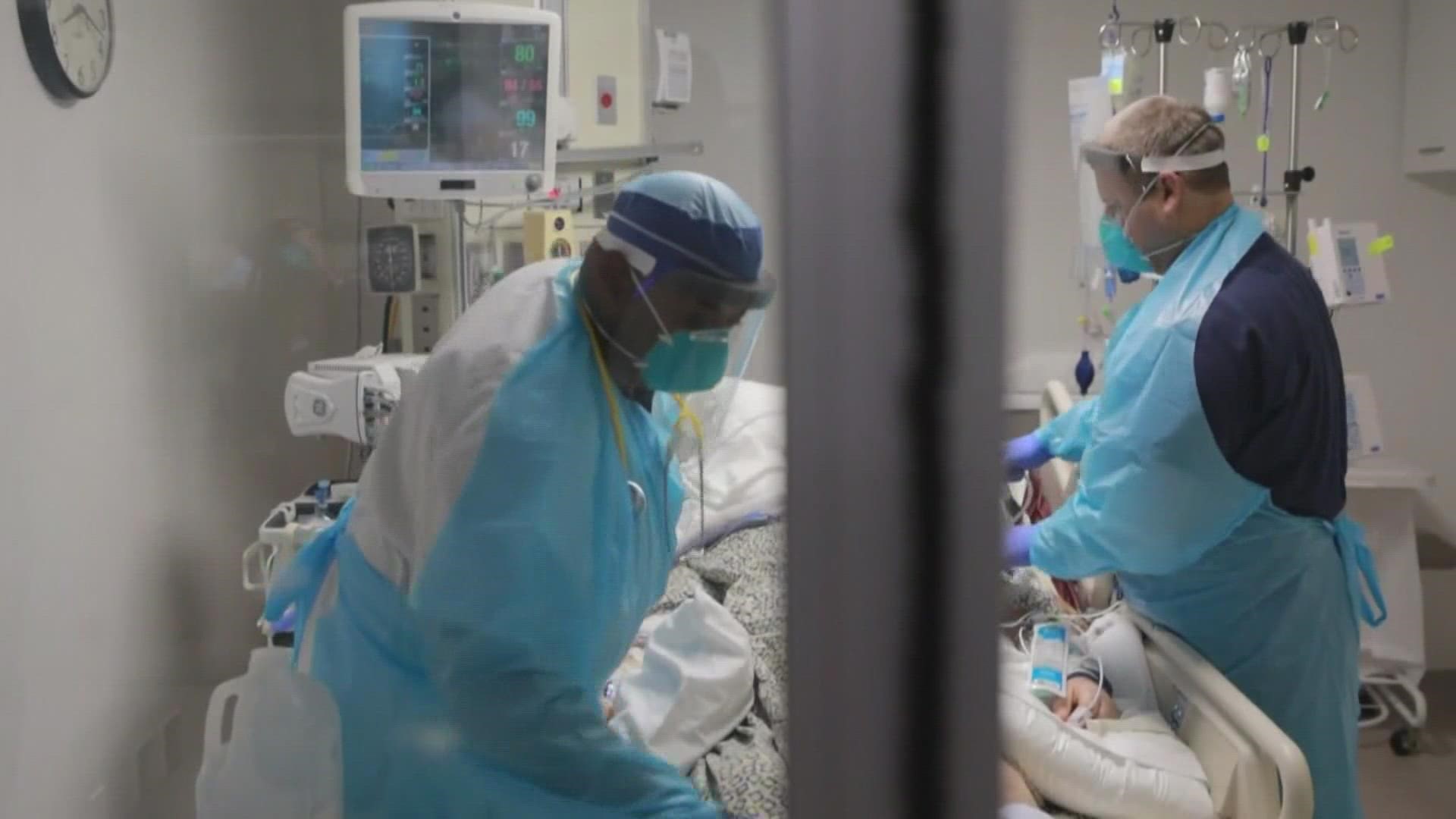ST. LOUIS — There's a new job for the St. Louis Metropolitan Pandemic Task Force.
For years, the group has led the St. Louis area through the pandemic from weekly briefings, to COVID-19 number updates and other information to keep people safe.
Now, that task force is turning its focus to other viruses and diseases.
The task force saw the benefit of everyone coming together weekly to discuss COVID-19.
Doctors know COVID is here to stay and we have the necessary resources to fight it now.
This is why they're using this time to focus on other public health issues.
Dr. Alex Garza, SSM Health Chief Community Health Officer and co-leader of the task force, said they are focusing specifically on diseases that are spreading rapidly in our community right now.
"Us all being in the same space, discussing this and what we can collectively do to help protect the community. It just makes sense," he said.
Dr. Garza said COVID-19 isn't going anywhere.
"It's still around right now. We're still transmitting virus throughout the community," he said.
It's not the number one thing on St. Louis health officials' minds, according to Dr. Garza.
"We're at a stage now, where the numbers aren't fluctuating as dramatically as they were before," he said.
Now, the St. Louis Metropolitan Pandemic Task Force is turning its focus to numbers in the community that are fluctuating.
Specifically, according to Dr. Garza, monkeypox, but more so syphilis.
"There has been a dramatic rise in congenital syphilis, over the past two to three years," he said.
According to the St. Louis County Health Department, in 2021, there were 63 congenital syphilis cases reported in Missouri and that's the highest since 1994.
"We're trying to figure out why, are we seeing this rise and where are some of the places where we can step in and be more proactive to try and figure out how to protect these babies from a devastating disease?" Dr. Garza said.
The spread of syphilis cases is alarming to Montrelle Day.
"Those rates are extremely high now, and it's getting dangerous," he said.
Demand for STD testing has increased for Day at the Community Wellness Project, especially since Planned Parenthood shut down.
He said many of his clients don't even know they have syphilis.
"A lot of these clients that come forward today, they are losing hair and have spots all over their hands, things like that, so that's what I'm dealing with here," Day said.
While there are new diseases to worry about, Day encourages people to not forget the ones that have been around all along.
"We can't forget about simple things, like HIV and STDs, that's rising along with these other things, that we got going on in the world right now," he said.
Day recommends people get tested for syphilis every three months, that way you always know where you stand.
Dr. Garza said syphilis is an infection that's preventable and easy to treat with antibiotics, so that's why they need to focus on the education part of it right now.

